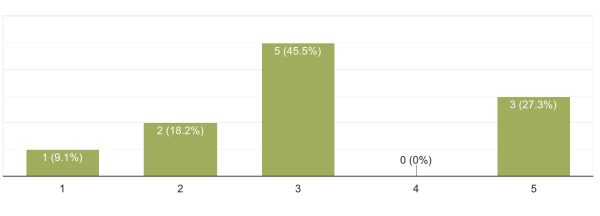The common belief among teenagers is that a poor diet will harm you only physically, which is true, however, poor nutritional choices have detrimental effects on your brain function and mentality as well. In modern society, mental health issues run rampant in teenagers, and there is a guarantee that these children’s diets are contributing to the epidemic. A healthy diet comprised of Whole Foods is necessary for proper brain growth and development.
Highly unhealthy processed and sugary foods have become increasingly normalized in recent years, and the normalization of these dietary choices is weakening the younger generation both physically and mentally. Although these foods have some positives that make them a fine treat once in awhile, such as convenience and taste, their prevalence in modern society must be limited in order to contain the mental health and obesity epidemics plaguing teenagers.
According to the CDC, approximately 1 in 5 teenagers today are obese, and 1 in 7 struggle with a diagnosed mental disorder. However, only 25 years ago in 2000, the obesity rate was 1 in 10, and according to the American Psychological Association, the rates of mental health disorders have gone up across the board. If you turn the clock back even further another 25 years to 1975, the obesity rates double once more to 1 in 20 adolescents. Although a lack of exact diagnostic data makes it impossible to calculate the exact number of youth struggling with mental illness in 1975, the Nuffield Foundation’s research has concluded that the percentages have likely rapidly increased.
In the same time period of the last 50 years, there is one more important statistic that has gone up along with the rates of obesity and mental disorders: the percentage of ultra-processed foods in the average American diet has gone up from 5% to 60%. This alarming statistic is caused by large food companies campaigning for more processed foods in recent years, which are easier and cheaper to produce than many organic foods. Despite the economic benefits of these foods, the negative health effects they can have on your body make them an absolute detriment to society.
Although the epidemic of poor nutrition is a global issue, it can be intensively seen at Norwin High School. In a pool of several Norwin High School students conducted on March 11th, 2025, 54% of students gave their diet a 3/5 star rating. Additionally, 73% of students stated that they do not actively and intensely pay attention to the harmful effects of the foods they consume. These alarming statistics provide an insight into the infection of unhealthy foods into Norwin High School.
”I definitely see a lot of it [unhealthy foods],” said Norwin sophomore Ben Peters. “I don’t typically eat junk food, but sometimes I’m in a rush and have to stop at McDonalds or something. It’s unavoidable in our society I feel.” Peters is a consistent weightlifter who has been training for over a year. His experience is similar to that of many teenagers today. Most people understand the negative effects of the foods they eat, but our society propagates these foods to the point where you cannot avoid them.

If this is such an issue, what are schools and government organizations doing about it? Truthfully, not much. Many schools, including Norwin, do not teach dietary education as a mandatory class past the 8th grade. This is an alarming issue, as it is particularly critical to inform the numerous high schoolers in our nation of the ways to maintain their health as they enter the independent world where they will be providing for themselves.
In numerous other countries besides the United States, food laws are much stricter, and limit large companies from introducing unhealthy foods into diets. For instance, Red 40, a food dye which has been linked to numerous mental health issues is banned in the United Kingdom, Norway, Finland, France, and Austria. However, according to a 2016 study, this dye is seen in 29.8% of grocery store items geared to children in America. If numerous countries limit or completely ban this dye due to its adverse effects, the exposure of Red 40 to American children needs to be limited as well. Young people are at the most critical stage of their development, and implementing this dye is setting them up for lifelong health issues.
Another dangerous item that most Americans consume daily is seed oils. Seed oils such as canola oil, corn oil, and soybean oil are used for frying and cooking, and are an ingredient in many unhealthy foods. According to the Cleveland Clinic, “a diet high in seed oils can play a role in skewing your body’s delicate balance of omega-6s and omega-3s. This can then contribute to inflammation, which can lead to chronic conditions.”
Although poor nutrition is a global issue, you must personally take steps to improve it. In order to personally improve your general health, it is necessary to improve your diet. According to UAB, “Diets high in saturated fats and refined carbohydrates are associated with greater incidences of depression, depressive symptoms, and anxiety.” Therefore, cutting out processed foods full of these artificial fats and carbohydrates is guaranteed to uplift your mental health. Although many of the artificial fats and carbs seen in unhealthy foods are dangerous, that does not mean that natural fats are a harm. In fact, many natural fats seen in foods such as olive oil and organic butter have proven benefits when consumed in moderation, according to UCLA’s Health Department.
The nutritional crisis in modern America is, without a doubt, the largest contributor to the alarming increase of mental health disorders in the last 50 years. Processed foods (literally and figuratively) being shoved down our throats by large food corporations have allowed many Americans, especially teenagers, to neglect their nutrition in favor of taste and convenience. Although these foods are incredibly common, when choosing a meal, it is important to consider their potential adverse effects and always make smart dietary choices.









